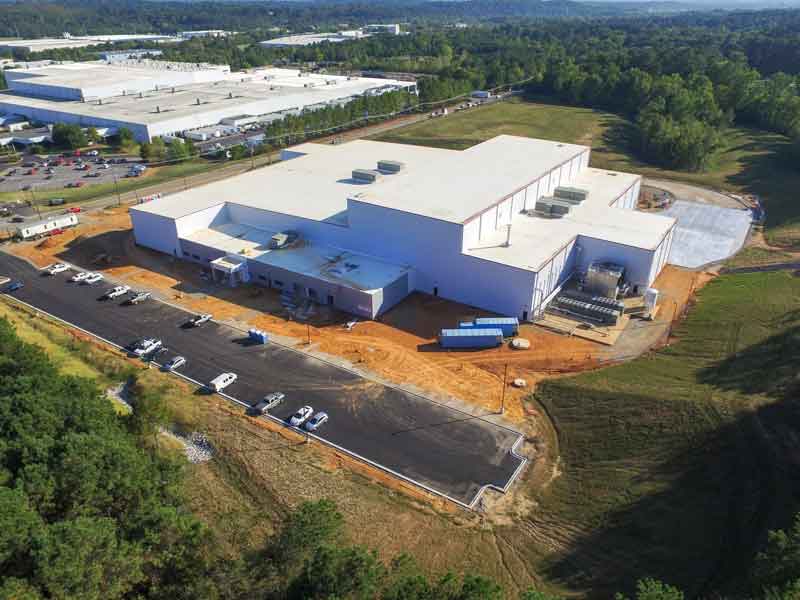An environmental group in Alabama has filed a “notice of intent to sue” a metal finishing and casting plant in Birmingham that it claims is violating the federal Clean Water Act.
Black Warrior Riverkeeper (BWR) — a nonprofit organization that promotes clean water — filed the notice to sue Kamtek, Inc. in federal court on March 22 for what it claims is a violation of toxic pollutant standards at the auto supplier’s aluminum casting plant. The notice says Kamtek discharges process wastewater to Jefferson County’s Five Mile Creek Wastewater Treatment Plant and that WWTP discharges into Five Mile Creek, a tributary of the Locust Fork of the Black Warrior River.
BWR is asking that Kamtek take “steps to eradicate the underlying cause of the violations” within 60 days of the notice, or the group says it will go forward with the lawsuit.
The Kamtek plant is owned by Magna International, which opened the $60 million and 150,000 square foot aluminum casting facility in 2017 to provide vehicle lightweight and part-reduction solutions for its automotive customers. The facility employs approximately 850 people and produces structural components for various customers, including Mercedes-Benz, Volkswagen, and Nissan.
Tracy Fuerst, Vice President for Corporate Communications and Public Relations at Magna, says the company is investigating the allegations made by BWR.
“As a trusted, responsible community partner in all our operations around the world, Magna takes allegations such as the one made by Black Warrior RiverKeeper, Inc. very seriously,” Fuerst says.
BWR says it filed the notice letter regarding Kamtek’s alleged failure to comply with mandatory pretreatment requirements implemented under the Clean Water Act. They say the U.S. EPA directly imposes pretreatment standards on indirect dischargers like Kamtek, and it is unlawful for them to operate in violation of these requirements.
“Five Mile Creek is a beautiful, free-flowing stream frequented by locals, fishers, boaters, and wildlife,” says Nelson Brooke, Black Warrior Riverkeeper. “Toxic heavy metals and chemicals are not welcome in this beloved creek, which is already on a multi-decade journey to combat its polluted ways of the past and present. We celebrate the 50th Anniversary of the Clean Water Act of 1972 this year by holding polluters accountable through the Act’s citizen suit provisions.”
BWR says Kamtek is in violation of EPA’s categorical pretreatment standards, which it says apply to 21 specific categories of industrial sources. The standards establish numeric limits on the discharge of particular toxic pollutants that could cause interference with a wastewater treatment plant’s processes or pass through the wastewater treatment plant to local streams and rivers. One of these specific categories is the Metal Finishing Point Source category, which BWR says applies to Kamtek.
A statement from BWR says: “According to EPA, the discharge of wastewater from electroplaters is a significant pretreatment problem. The pollutants regulated by this category, including the nickel, zinc, and phenols that Kamtek discharges into the Five Mile Creek WWTP, are toxic to human beings and aquatic organisms. These pollutants can only be partially removed by municipal treatment systems like Five Mile Creek WWTP, and the rest pass through to Five Mile Creek. The metals and phenols that do not pass through the treatment system to Five Mile Creek accumulate in the WWTP’s sludge. These concentrated pollutants can interfere with the WWTP’s treatment operations.”
The BWR statement goes on to say: “EPA has found that at activated sludge treatment plants, such as the Five Mile Creek WWTP, more than 80% of nickel and between 30% and 40% of zinc are not removed or captured during treatment. Depending on sludge disposal methods, metals in sludge can contaminate the air, the water, or in some cases enter the human food chain.”
“EPA’s categorical pretreatment standards were designed to prevent untreated pollutants from interfering with treatment at Five Mile Creek WWTP or passing through the plant into Five Mile Creek,” says Eva Dillard, BWR staff attorney. “Because Kamtek is not consistently meeting these standards, Five Mile Creek is not being protected.”
BWR says to address Kamtek’s violations and ongoing pollution, “the groups are seeking pretreatment of toxic pollutants that complies with the law, and any other appropriate measures by Kamtek to stop their violations of the Clean Water Act.”



































